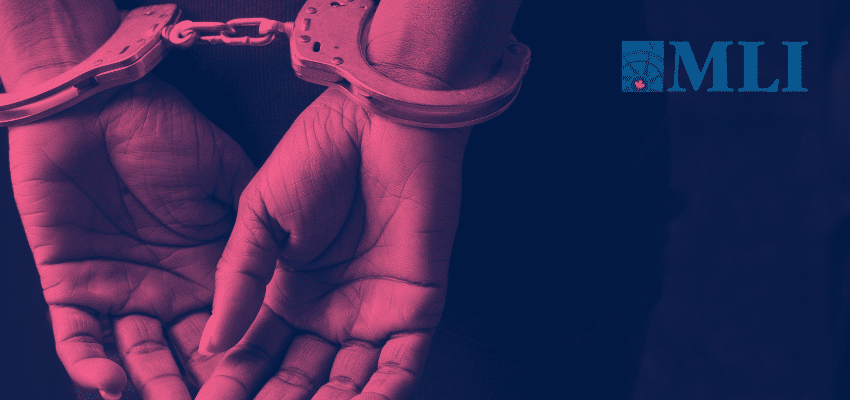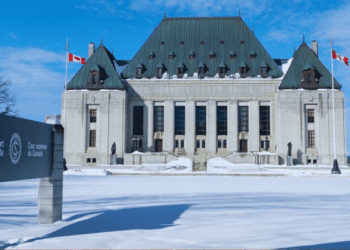This article originally appeared in the National Post. It unpacks the key insights of polling commissioned by the Centre For Responsible Drug Policy in partnership with the Macdonald-Laurier Institute.
A PDF of the interim polling report is available here: Drugs and Racial Justice Report.
By Adam Zivo, October 16, 2024
Harm reduction activists often claim that criminalizing drugs is racist, and that legalization is necessary for racial justice and Indigenous reconciliation. A new poll, however, shows that a clear majority of non-white British Columbians, particularly Indigenous ones, disagree with this view.
The Centre For Responsible Drug Policy (an organization I founded and direct), in partnership with the Macdonald-Laurier Institute, contracted Mainstreet Research last month to add three questions to a poll of over 12,000 British Columbians, including: “Do you agree or disagree that criminalizing drugs is racist?”
Though the poll will only be completed later this month, we decided to release our preliminary data now, before B.C.’s upcoming provincial election, through an interim “Drugs and Racial Justice Report.” With a sample size of 6,320 responses, the document shows that — contrary to what is claimed by harm reduction activists and public health bureaucrats — non-white British Columbians overwhelmingly don’t think it is racist to criminalize drugs.
Only 26 per cent of non-white respondents agreed that drug criminalization is racist, and more than twice as many (55 per cent) disagreed.
While there was a near-equal split between non-white respondents who somewhat agreed or disagreed on this issue, the number of people who strongly disagreed was almost three times higher than those who strongly agreed (43 versus 15 per cent). That suggests that those who felt that criminalization is not racist were far more vehement about their beliefs than the other side.
The sample size for “non-white respondents,” as an amalgamated group, was 1,027 in the interim report, which is widely considered trustworthy by most pollsters. The narrow margin of error (+/- 3 per cent) was too small to confound the wide gap between the “agree” and “disagree” sides with this subpopulation.
The results for specific ethnic groups were less certain, though.
The minimum sample size for meaningful polling results is 100 respondents. However, even if you meet that threshold, your margins of error will remain high (five to 10 per cent) until you get to a sample of around 500 respondents or more. Meeting, let alone exceeding, these numbers is a challenge when each ethnic group in Canada accounts for only a sliver of the total population.
If you sample 1,000 random Canadians, for example, and only five per cent of the general population is ethnically Chinese, you should get, on average, a Chinese-Canadian sample of only 50 people. This is insufficient. Worse yet, minority groups are chronically underrepresented in raw polling data and sometimes struggle with language barriers, so, in practice, your sample will likely be even smaller and biased towards “westernized,” English-speaking segments of any ethnic community.
Although my organization used an extremely large overall sample, some ethnic groups (i.e. Black, Latino, Middle Eastern) did not meet the minimum threshold in the preliminary report, and those that did (i.e. East Asian, South Asian, First Nations) still had fairly large margins of error.
Despite these uncertainties, some important insights can still be gleaned.
South Asian and East Asian respondents were more likely than other minority groups to say that drug criminalization is racist — but a moderate majority still disagreed with the narrative. The margins of error for these groups make these results somewhat inconclusive, but we can exclude, at the very least, the possibility that a large majority of either community supports drug legalization on racial justice grounds.
Things were less ambiguous with First Nations: only 17 per cent agreed that drug criminalization is racist, while an astounding 68 per cent disagreed. The margin of error here (+/- seven per cent) is nowhere near large enough to bridge this enormous 51-point gap, so we can say, with a high degree of certainty, that First Nations residents in B.C. overwhelmingly do not think that legalizing drugs is essential to racial justice or reconciliation.
This shouldn’t be too surprising, though. Not only have addictive substances historically wrought terrible harms upon Canada’s First Nations, some Indigenous leaders have said that their communities generally hate laissez-faire drug policies. We now have data to validate their anecdotal testimony.
The data contained in the preliminary Drugs and Racial Justice Report makes it clear that B.C’s minority communities as a whole, and First Nations especially, are not being listened to by addiction policy-makers and are actually being exploited to push radical agendas they don’t support.
For example, B.C.’s Provincial Health Officer, Dr. Bonnie Henry, released a report months ago calling for full drug legalization, which she said was necessary for reconciliation. The report claimed that prohibition is “based on a history of racism, white supremacy, paternalism, colonialism, classism and human rights violations.” Similar messaging was used in a 2021 report published by the Health Canada Expert Task Force on Substance Use, which also called for decriminalizing drugs.
That these so-called “experts” can make such claims, despite having little actual support from minority communities, is a depressing indictment of the state of Canada’s public health bureaucracies.
But it appears that minority communities may be fed up with all of this. While Mainstreet’s aggregated polling data (which is included in our report) shows that the drug-friendly B.C. NDP have a slight lead among white voters, minority voters appear to be flocking to the B.C. Conservatives, who enjoy a +11.7 point lead among non-white voters in general.
Adam Zivo is Executive Director of the Centre For Responsible Drug Policy.







